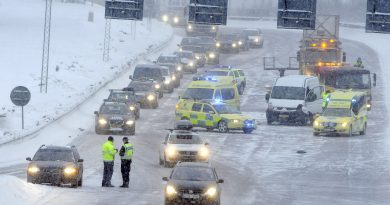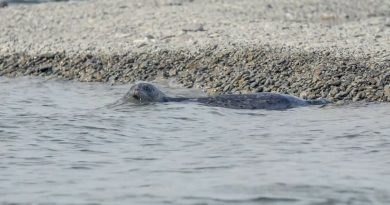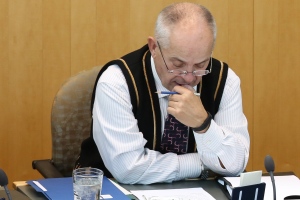Ice-Blog: Trump’s alternative reality? No warming, cool oceans, intact coral

“Irene, have you heard the news? Looks like Trump has pulled out of the Paris Agreement.” While the US President kept the suspense up until Thursday night – has he, hasn’t he, will he, won’t he -I struggled to reconcile his action with what I was hearing from a wide spectrum of highly intelligent people with decades of research and experience to their credit.
I was in Kiel this week, on Germany’s Baltic coast, attending a working meeting of the scientists involved in BIOACID, a national German programme (supported by the BMBF, Federal Ministry of Education and Research) to investigate the “Biological Impacts of Ocean Acidification”. It has almost run its course, eight years of research in the bag.
And what I was hearing did nothing to allay my concern about the impacts of our greenhouse gas emissions. We are rapidly and undeniably changing the planet we live on – land and sea. And that applies particularly to the Arctic.
The scientific evidence
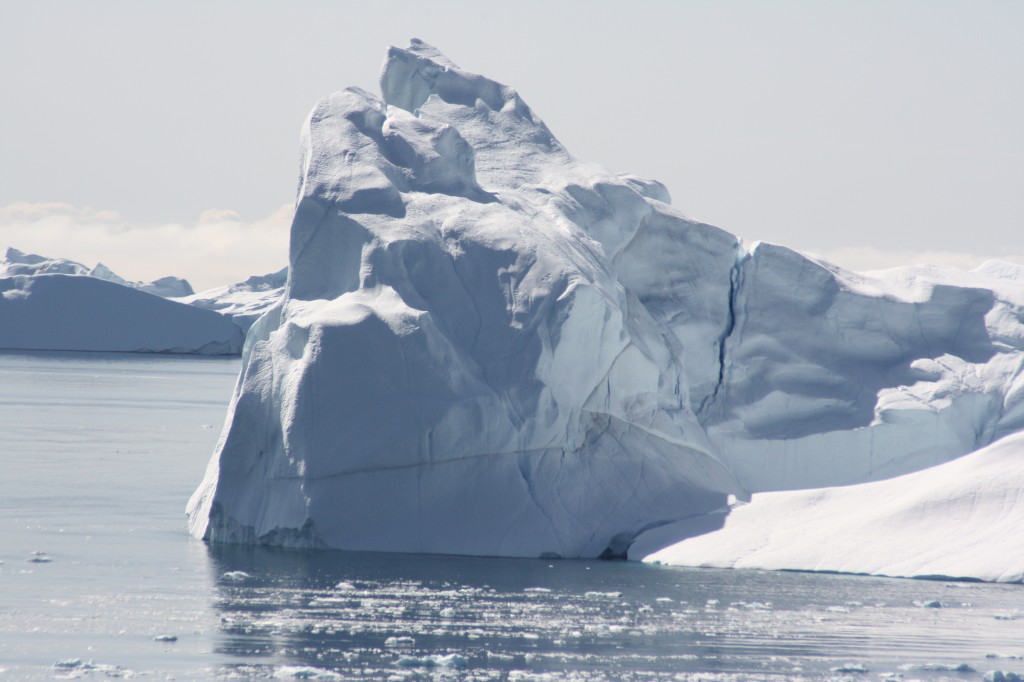
Can President Trump really fail to see the dangers of our human interference? Is he really oblivious to what climate change is doing to the ocean that covers 70 percent of the surface of our planet?
Maybe he lives in a parallel universe, where alternative facts prevail.
Back in 2010, I was able to witness the work of some of the scientists assembled in Kiel this week at first hand, as they lowered mesocosms, a kind of giant test tubes, into the Arctic Ocean off the coast of Svalbard. The aim was to find out how the life forms in the water would react to increasing acidification of their environment, as our greenhouse gas emissions result in more and more CO2 being absorbed into the ocean.
Drawing the threads together
Ulf Riebesell is Professor of Professor of Biological Oceanography at, GEOMAR, the Helmholtz Centre for Ocean Research in Kiel, and the coordinator of BIOACID.
When I first met him, he was kitted out in survival gear, supervising the transport and deployment of the mesocosms from Germany up to the Svalbard archipelago. He doesn’t need the cold-weather gear this week, in a summery Kiel, where he gathered representatives of the different working groups involved in the German project to draw some threads together as the project approaches its conclusion in November.
Good timing. The results will be ready to hand to the delegates attending this year’s UN climate extravaganza, COP23, in Bonn. Another key piece in the jigsaw puzzle of how climate change is affecting the world we live in and will determine the future of coming generations.
All creatures great and small
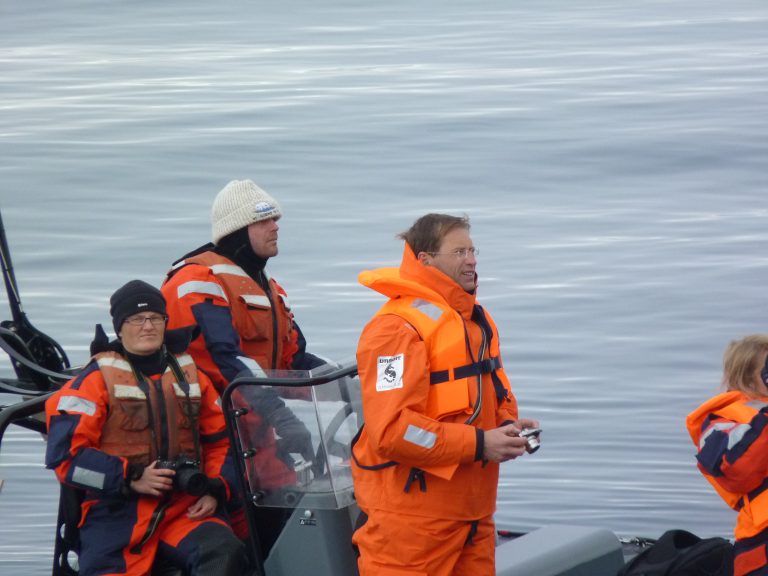
The scientists assembled represent a wide range of expertise. From the tiniest of microbes through algae, corals, fish and the myriad organisms that live in our seas- they have been trying to find out what happens when living conditions change for our fellow planetary residents – and how all this affects an ever-increasing population of humans and the complex societies we live in.
The ocean is changing at an unprecedented rate. It is becoming warmer, even in the depths, and it is becoming more acidic.
The work of Riebesell and his colleagues has shown that in our rapidly warming world, the CO2 that goes into the ocean is reducing the amount of calcium carbonate in the sea water, making life very difficult for sea creatures that use it to form their skeletons or shells. This will affect coral, mussels, snails, sea urchins, starfish as well as fish and other organisms. Some of these species will simply not be able to compete with others in the ocean of the future.
The Arctic predicament
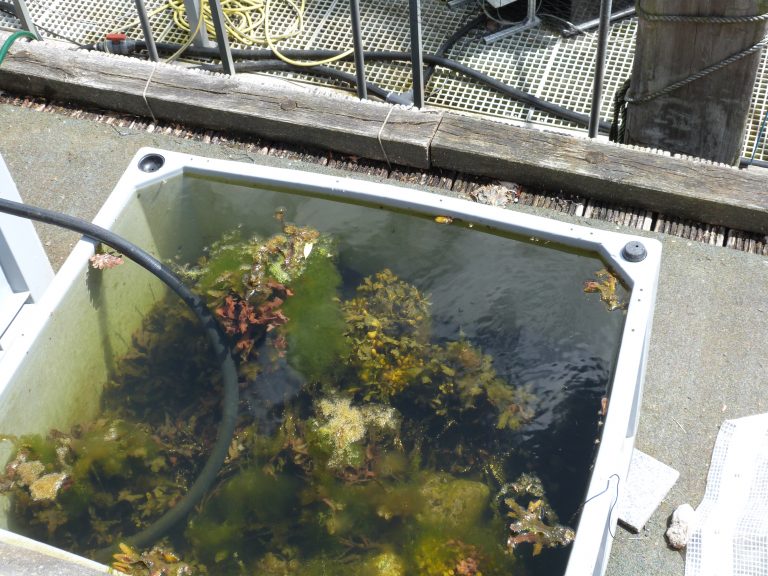
Acidification is not something that affects all regions and species equally. Once again, the Arctic is getting the worst of it. Cold water absorbs CO2 faster. Experiments in the Arctic indicate that the sea water there could become corrosive within a few decades, as Ulf Riebesell has told me on several occasions since I first met him on Svalbard in 2010. “That means the shells and skeletons of some sea creatures would simply dissolve.”
Scientists warn that a combination of acidification, warming and stressors like pollution of all sorts will ultimately affect the food chain. (Indeed that is already happening).
Warming as usual?
While the BIOACID project comes to an end and the scientists fight for new funding to carry on research into ocean acidification, which requires a combination of field-work and modelling, the world continues on course for far more than the two degrees – or 1,5 set out in the Paris Agreement.
“Ocean Warning” was the cover title on the Economist magazine this week, ahead of next week’s UN Oceans Conference in New York.
“The Paris Agreement is the single best hope for protecting the ocean and its resources”, the magazine reads. But it stresses: “the limits agreed on in Paris will not prevent sea levels from rising and corals from bleaching. Indeed, unless they are drastically strengthened, both problems risk getting much worse. Mankind is increasingly able to see the damage it is doing to the ocean. Whether it can stop it is another question”.
Bending the truth?
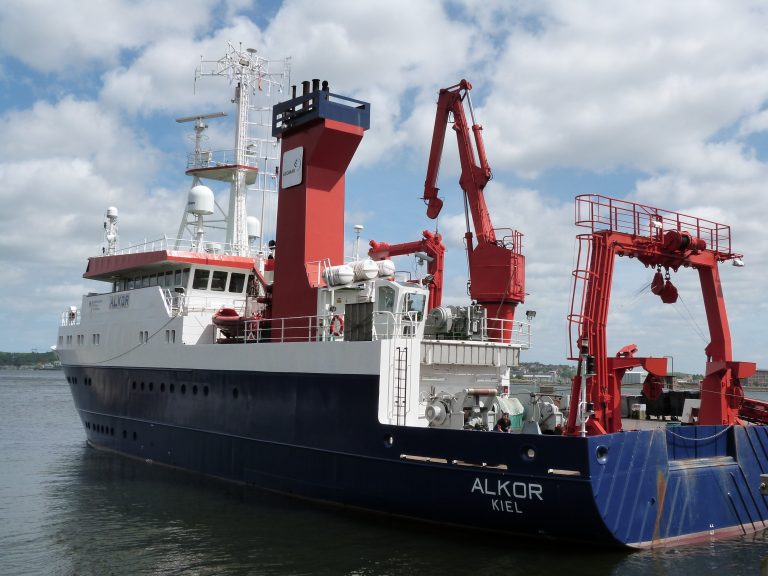
At the meeting in Kiel, I asked Professor Hans-Otto Pörtner, the other coordinator of BIOACID, senior scientist at the Alfred Wegener Institute and co-chair of the IPCC Working Group 2 for his view of the current situation, with US President Trump getting set to leave the Paris Agreement:
Call to action
Indeed. We are all in this together.
But there is not only bad news:
“It remains to be seen to what extent U.S. emissions will be driven by federal policy, or actions at the State and city level, or by market and technological changes”, Professor Pörtner told me.
There is, it seems to me, an upside to President Trump’s decision to live in his own alternative reality. It galvanizes those of us who live in the real world to make sure climate action goes ahead. China and the EU closed ranks this week. States, companies, civil societies and committed individuals across the USA are stressing they will press on with the green energy revolution regardless.
In the interests of the icy north – and the rest of the planet it influences so considerably – we really have no choice.
Related stories from around the North:
Canada: Arctic countries blast Trump decision to withdraw from Paris climate deal, Eye on the Arctic
Finland: U.S. pullout from Paris climate pact condemned by Finnish leaders, Yle News
Denmark/Greenland: Ice-Blog: Deciding Arctic future in Fairbanks and Bonn, blog by Irene Quaile, Deutsche Welle
Norway: As Arctic weather dramatically changes, world meteorologists take on more joint forecasting, The Independent Barents Observer
Russia: 2016, warmest year on record in Russian Arctic, The Independent Barents Observer
Sweden: Sweden’s climate minister : U.S. withdrawal from Paris sends a bad signal, Radio Sweden
United States: Trump administration sought last-minute changes to soften Arctic Council climate-change commitment, Alaska Dispatch News


